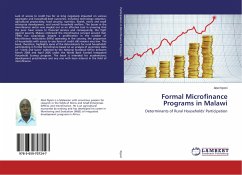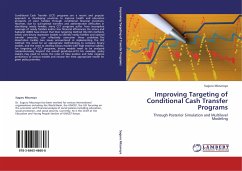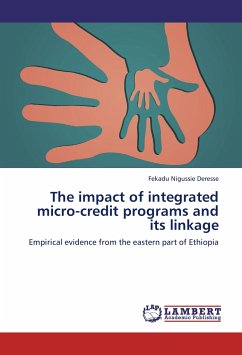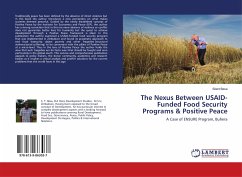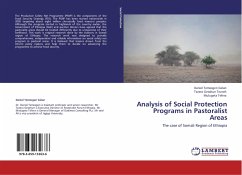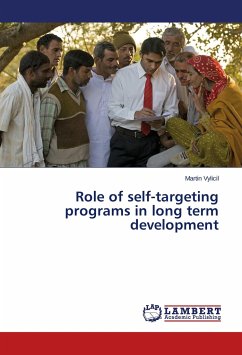Lack of access to credit has for so long negatively impacted on various aggregate and household-level outcomes, including technology adoption, agricultural productivity, food security, nutrition, health, micro and small enterprise development, and overall household welfare. The boom in the microfinance sector was singled out as an effective tool in ensuring that the poor have access to financial services and consequently, the fight against poverty. Malawi embraced the microfinance concept around mid-1990s but surprisingly, despite a proliferation in the number of Microfinance Institutions (MFIs) operating in the country, the proportion of households with access to any form of credit still remains very low. This book, therefore, highlights some of the determinants for rural households' participating in formal microfinance based on an analysis of secondary data on "credit and loans" collected by the National Statistical Office between March 2004 and April 2005 under the World Bank funded Integrated Household Surveys program. The book is intended for academicians, development practitioners and any one with keen interest in the field of microfinance.
Bitte wählen Sie Ihr Anliegen aus.
Rechnungen
Retourenschein anfordern
Bestellstatus
Storno

